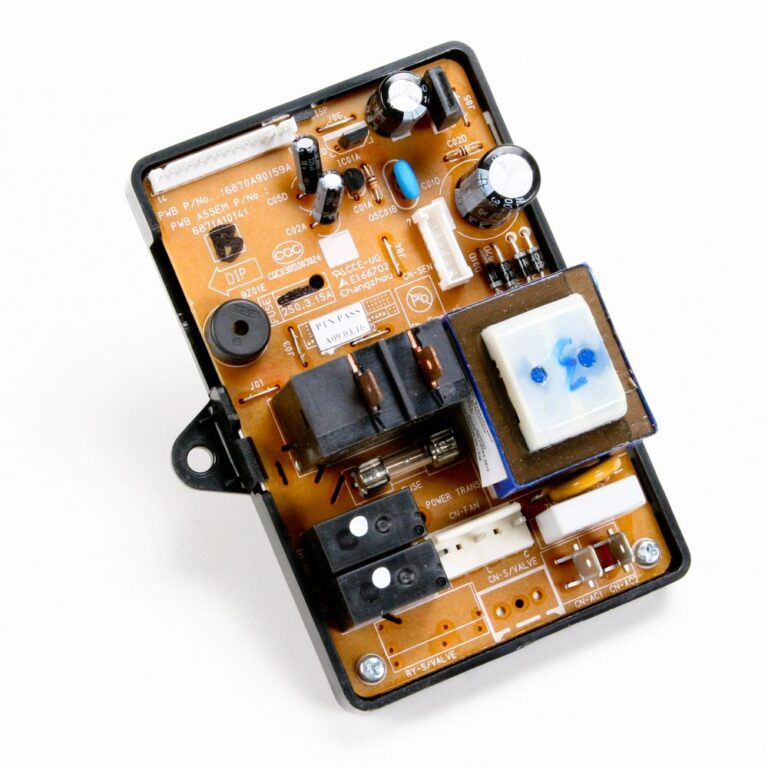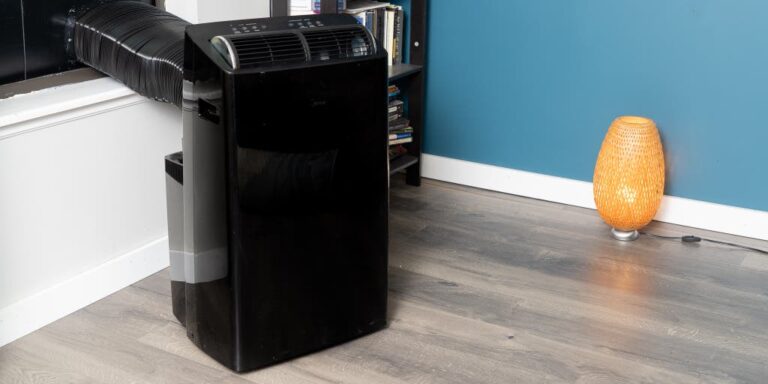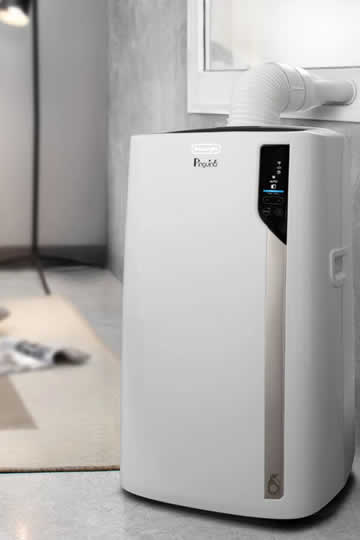Why Do My Lights Flicker When The AC Turns On? Troubleshooting Tips
Your lights flicker when the AC turns on due to a temporary voltage drop. This happens because the AC unit requires a significant amount of power to start.
Experiencing flickering lights when the AC kicks in can be concerning. The sudden power demand from the air conditioner can cause a brief voltage drop, affecting other electrical devices. This issue is common in older homes with outdated wiring or insufficient electrical capacity.
Regular flickering can indicate potential problems with your electrical system. Addressing this promptly can prevent further issues and ensure the safety of your home. Understanding the cause helps in determining whether a simple solution, like upgrading your electrical panel, or more extensive repairs are needed. Regular maintenance and professional inspections can help maintain a safe and efficient electrical system.

Credit: m.youtube.com
Common Causes
Experiencing flickering lights when the AC turns on can be frustrating. Understanding the common causes can help you address the issue effectively. This section explores two primary reasons: voltage drops and circuit overloads.
Voltage Drops
Voltage drops occur when the electrical demand exceeds the supply. This often happens when your AC unit starts. The sudden demand for power can cause a brief dip in voltage. This dip results in flickering lights. Older homes are more prone to this issue. They often have outdated wiring.
Common signs of voltage drops include:
- Frequent flickering lights
- Dim lights when large appliances start
- Unusual sounds from the AC unit
To prevent voltage drops, consider upgrading your home’s electrical system. Consult a licensed electrician for a thorough assessment.
Circuit Overloads
Circuit overloads happen when too many devices share the same circuit. Your AC unit may draw significant power. This can overload the circuit, causing lights to flicker. Modern homes have dedicated circuits for high-power appliances. If your home lacks these, you may face circuit overloads.
Signs of circuit overloads include:
- Frequent tripping of circuit breakers
- Burning smells near outlets
- Warm or hot outlets and switches
To solve circuit overloads, redistribute your electrical load. Use different circuits for different appliances. An electrician can help you rewire your home to prevent overloads.
Electrical Panel Issues
Lights flickering when the AC turns on can be troubling. Often, this issue can be traced back to your electrical panel. Your electrical panel is the heart of your home’s electrical system. It distributes electricity to various circuits in your home.
Loose Connections
One common cause of flickering lights is loose connections in the panel. Loose wires can create an unstable flow of electricity. This instability can cause lights to flicker or dim.
To identify loose connections:
- Turn off the main power
- Check wires in the panel
- Tighten any loose connections
If you’re uncomfortable doing this, call a professional electrician. They can safely inspect and fix the issue.
Faulty Breakers
Another possible issue is faulty breakers. Breakers control the flow of electricity to your home. If a breaker is faulty, it can cause lights to flicker.
Signs of a faulty breaker include:
- Frequent tripping
- Burnt smell near the panel
- Visible damage to the breaker
Replace any faulty breakers immediately. This will ensure a steady flow of electricity.
Ac Unit Problems
Experiencing flickering lights when the AC turns on can be annoying. This issue often points to problems with your AC unit. Understanding these problems can help in diagnosing and fixing the issue efficiently.
Compressor Issues
The compressor is the heart of your AC system. It requires a lot of power to start. If the compressor is malfunctioning, it can draw excessive current. This sudden power surge can cause your lights to flicker. Regular maintenance can help detect such issues early.
Capacitor Failure
The capacitor in your AC unit helps in starting the compressor and fan motor. If the capacitor is failing, it may not provide enough power. This can result in your lights flickering each time the AC kicks on. Replacing a faulty capacitor can solve this problem.
Experiencing flickering lights when the AC turns on can be annoying. This issue often points to problems with your AC unit. Understanding these problems can help in diagnosing and fixing the issue efficiently.
Compressor Issues
The compressor is the heart of your AC system. It requires a lot of power to start. If the compressor is malfunctioning, it can draw excessive current. This sudden power surge can cause your lights to flicker. Regular maintenance can help detect such issues early.
Capacitor Failure
The capacitor in your AC unit helps in starting the compressor and fan motor. If the capacitor is failing, it may not provide enough power. This can result in your lights flickering each time the AC kicks on. Replacing a faulty capacitor can solve this problem.
Experiencing flickering lights when the AC turns on can be annoying. This issue often points to problems with your AC unit. Understanding these problems can help in diagnosing and fixing the issue efficiently.
Compressor Issues
The compressor is the heart of your AC system. It requires a lot of power to start. If the compressor is malfunctioning, it can draw excessive current. This sudden power surge can cause your lights to flicker. Regular maintenance can help detect such issues early.
Capacitor Failure
The capacitor in your AC unit helps in starting the compressor and fan motor. If the capacitor is failing, it may not provide enough power. This can result in your lights flickering each time the AC kicks on. Replacing a faulty capacitor can solve this problem.
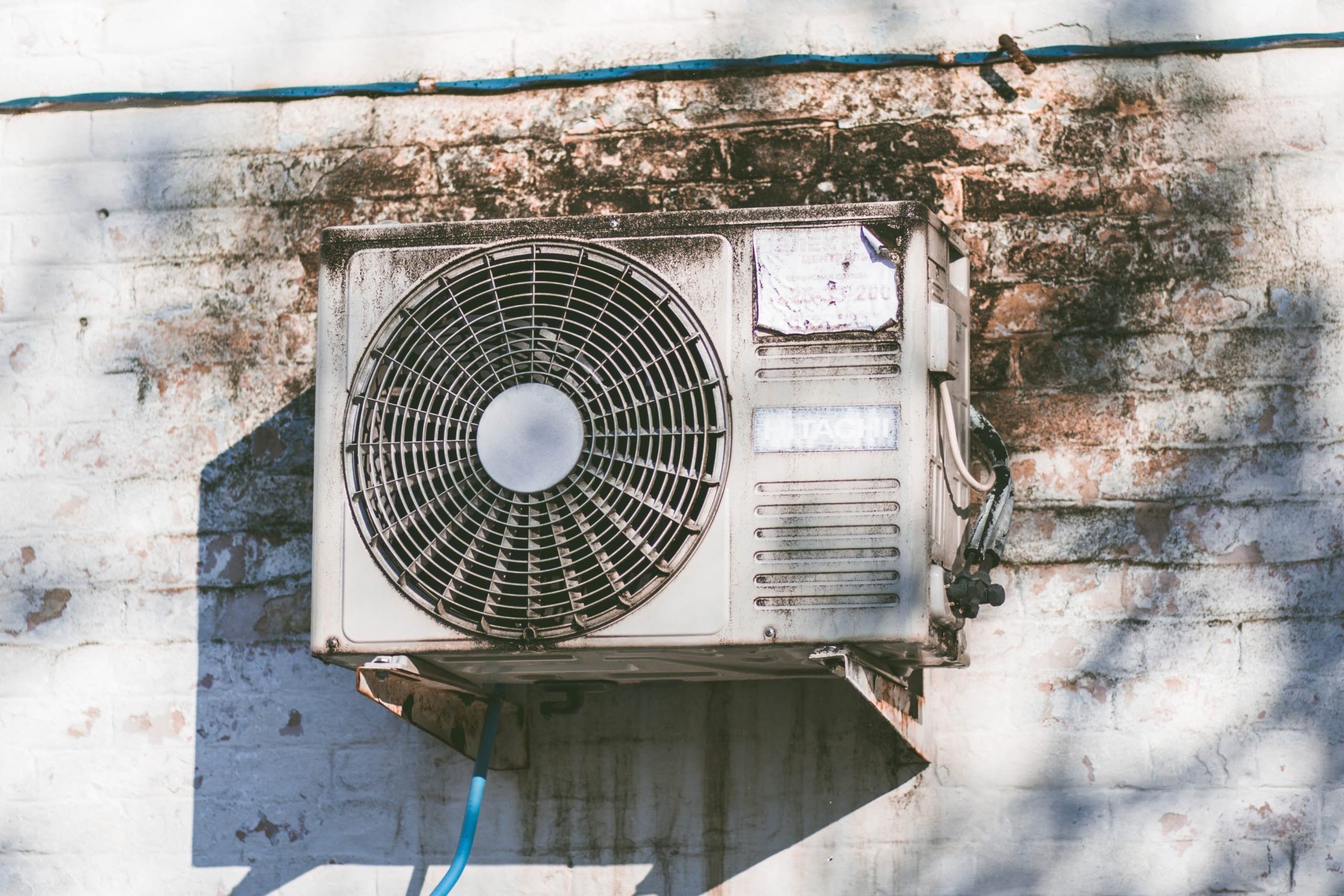
Credit: www.acelectricohio.com
Wiring Concerns
When your lights flicker as the AC turns on, it can be alarming. One possible cause is wiring concerns. Faulty or outdated wiring can lead to inconsistent power delivery. This can make your lights flicker. Let’s dive into the specifics.
Old Wiring
Homes with old wiring are more prone to issues. Over time, wires degrade. This wear and tear can cause flickering lights. Old wiring may not handle modern electrical loads. If your home is old, consider checking the wiring.
Improper Installation
Improper installation can also cause flickering lights. This happens when wires are not connected correctly. Loose or poorly connected wires can lead to inconsistent power. This can make your lights flicker every time the AC turns on. Always hire a licensed electrician for installations. Proper installation ensures your home’s electrical system works correctly.
| Wiring Issue | Effect | Solution |
|---|---|---|
| Old Wiring | Inconsistent Power | Upgrade Wiring |
| Improper Installation | Loose Connections | Hire Licensed Electrician |
Addressing these wiring concerns can resolve flickering lights. Always prioritize safety and professional help.
Utility Provider Factors
When your lights flicker, the utility provider might be the culprit. Understanding the factors they control helps. Here are some reasons your lights flicker when the AC turns on.
Grid Instability
Grid instability can cause lights to flicker. The power grid distributes electricity to homes. Sometimes, the grid faces issues. These issues can be due to weather conditions or maintenance work. An unstable grid means inconsistent power flow. This leads to flickering lights when the AC kicks in.
Utility providers monitor and manage the grid. But, they can’t always prevent instability. Power surges and drops happen. This affects your home’s lighting. Be aware of local grid conditions. Contact your utility provider if flickering persists. They can provide updates and solutions.
Peak Demand Times
Peak demand times can strain the power supply. During peak times, more people use electricity. This usually happens in the evening or during heatwaves. Your AC requires a lot of power. When many AC units run simultaneously, the grid feels the pressure.
Here are some common peak demand times:
- Summer afternoons and evenings
- Winter mornings and evenings
- During heatwaves or cold snaps
During these times, lights might flicker more. The grid struggles to keep up with the demand. Utility providers sometimes issue warnings. Pay attention to these alerts. They help manage your power usage and reduce flickering.
Understanding these utility provider factors can help you manage flickering lights. Always stay informed and proactive.
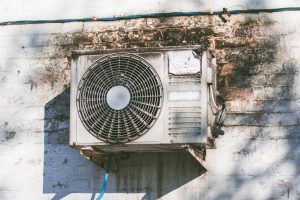
Credit: www.acelectricohio.com
Diy Troubleshooting
Experiencing flickering lights when your AC turns on can be frustrating. Often, this issue has simple fixes you can handle yourself. Here, we will cover DIY Troubleshooting to help you resolve this problem.
Inspecting Connections
First, turn off the power to your AC unit. This ensures safety while you work. Then, check all electrical connections. Loose connections can cause flickering lights.
- Inspect the breaker panel.
- Check the connections at the thermostat.
- Look at the AC unit’s wiring.
If you find any loose wires, tighten them carefully. Always use insulated tools to avoid shocks. Loose connections often cause voltage drops, leading to flickering lights.
Using A Multimeter
A multimeter helps you measure electrical values. You can check for proper voltage levels. Set your multimeter to the AC voltage setting.
- Turn off the power to the unit.
- Disconnect the wires from the AC unit.
- Measure the voltage at the breaker panel.
- Measure the voltage at the AC unit.
Compare the readings with the unit’s specifications. If the readings are low, you may have a more serious issue. Call a professional if needed.
Using a multimeter can help you identify voltage issues. Proper voltage is crucial for the smooth operation of your AC unit.
When To Call A Professional
Experiencing flickering lights when the AC turns on can be troubling. While some causes are minor, others can be serious and need a professional. Knowing when to call an expert can prevent bigger problems.
Safety Concerns
Electrical safety is crucial in any home. Flickering lights can mean a serious issue. Faulty wiring or overloaded circuits can cause fires. If you notice burning smells or sparking, call a professional right away.
Shock hazards are another concern. Exposed wires or faulty switches can cause electric shocks. If your lights flicker and you suspect wiring issues, it’s best to get help.
Complex Electrical Issues
Some electrical issues are too complex for DIY fixes. Flickering lights may be a sign of voltage fluctuations. These fluctuations can damage appliances and electronics. Only a professional can properly diagnose and fix these problems.
Circuit breaker problems can also cause flickering lights. A professional can assess if the breaker needs repair or replacement. This ensures your home’s electrical system is safe and efficient.
Electrical panel upgrades might be necessary. Older homes may have outdated panels that can’t handle modern loads. A licensed electrician can upgrade your panel to meet current standards.
Preventative Measures
Flickering lights when the AC turns on can be bothersome. It can also indicate potential electrical issues. Taking preventative measures can help you avoid these problems. Let’s explore some key strategies to keep your lights steady.
Regular Maintenance
Regular maintenance is essential for both your AC unit and electrical systems. Schedule annual checks for your AC unit. This ensures that it operates efficiently. A well-maintained AC reduces the chances of power surges. Power surges can cause lights to flicker.
- Change air filters monthly.
- Check refrigerant levels.
- Inspect and clean coils.
- Ensure proper airflow.
Regular maintenance keeps your AC in top condition. It also helps to identify potential issues early. Addressing these issues prevents them from affecting your electrical system.
Upgrading Electrical Systems
Older homes may have outdated electrical systems. These systems struggle to handle modern appliances. Upgrading your electrical system can provide a stable power supply. This helps prevent flickering lights.
| Upgrade | Benefit |
|---|---|
| Install a dedicated circuit for the AC | Reduces load on existing circuits |
| Upgrade to a higher capacity breaker | Handles power surges better |
| Replace old wiring | Improves overall safety and efficiency |
Consult a licensed electrician for these upgrades. Professional help ensures safety and compliance with codes. Upgrading your electrical system provides peace of mind.
By following these preventative measures, you can enjoy a stable and reliable power supply. This keeps your lights from flickering every time the AC turns on.
Frequently Asked Questions
How Do I Stop My Lights From Flickering When My Ac Is On?
Check your wiring for loose connections. Install a dedicated circuit for your AC. Upgrade to a higher capacity breaker. Consider a hard start kit for your AC unit. Consult a licensed electrician for a thorough inspection.
Is It Okay If Lights Flicker When Ac Turns On?
Lights flickering when the AC turns on is common. It usually indicates a high power draw. If frequent, consult an electrician.
Is It Normal For Lights To Dim When Ac Turns On?
Yes, it is normal for lights to dim when the AC turns on. The AC draws significant power initially.
Conclusion
Flickering lights when the AC turns on can indicate electrical issues. Addressing these problems promptly ensures home safety and comfort. Regular maintenance of your electrical system can prevent future issues. Consult a professional electrician if you notice persistent flickering. Keeping your home’s electrical system in top shape is essential for smooth AC operation.




